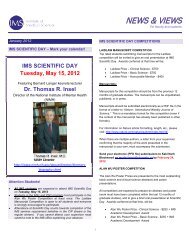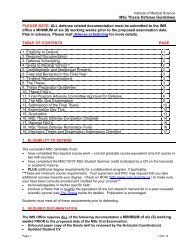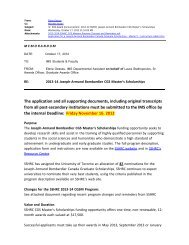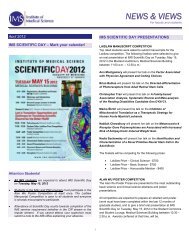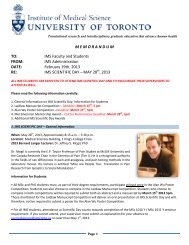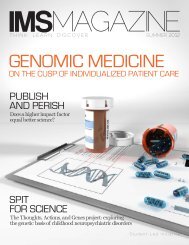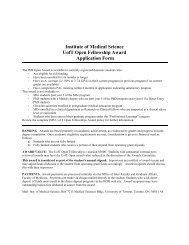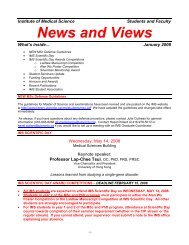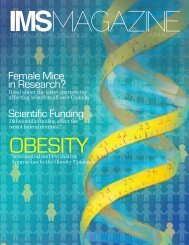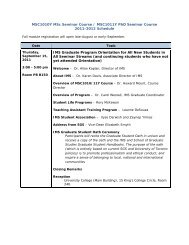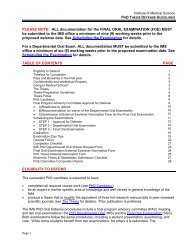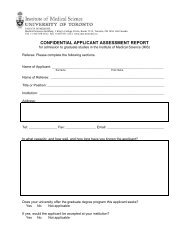Fall 2011 - Institute of Medical Science - University of Toronto
Fall 2011 - Institute of Medical Science - University of Toronto
Fall 2011 - Institute of Medical Science - University of Toronto
Create successful ePaper yourself
Turn your PDF publications into a flip-book with our unique Google optimized e-Paper software.
VIEWPOINT<br />
this bias should be <strong>of</strong> high importance to the<br />
scientific community.<br />
Negative results from lab to<br />
publication<br />
In medical research, discovering that a drug<br />
is efficacious, for example, or that a lifestyle<br />
factor influences health, is clearly important.<br />
But is it any less important to discover that a<br />
drug does not work, or that a lifestyle factor<br />
has no effect on a health outcome? Much <strong>of</strong><br />
academia is focused on the ethos <strong>of</strong> “publish<br />
or perish,” yet the world <strong>of</strong> publishing is built<br />
around positive, rather than negative, results.<br />
A recent correspondence in Nature further<br />
expounds the issue by illustrating how repressing<br />
negative results can skew the literature.<br />
National <strong>Institute</strong>s <strong>of</strong> Health researcher<br />
Nitin Gupta (<strong>2011</strong>) writes that it is important<br />
to publish negative results because, when<br />
combined with significant results from other<br />
studies in meta-analyses or reviews, less robust<br />
results may be discovered. Inclusion <strong>of</strong><br />
negative results in these compilations can aid<br />
in more accurate comparisons and corrections<br />
across studies.<br />
Gupta explains his opinions using a hypothetical<br />
experiment that failed to reach the<br />
P



